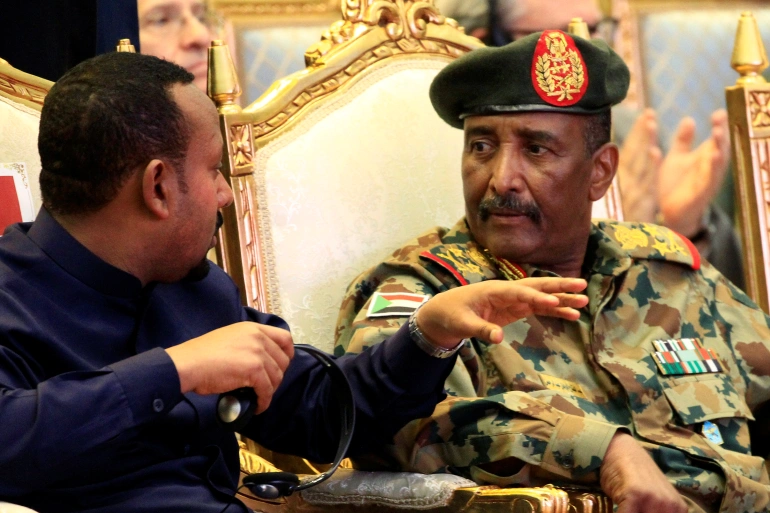August 22, 2022
Ethiopian Prime Minister Abiy Ahmed met last month with Sudanese military leader, General Abdel Fattah al-Burhan, in the Kenyan capital of Nairobi in an attempt to reconcile an ongoing border dispute between the two countries. Violent clashes have taken place in recent weeks over such quarrelling, with alarming claims having latterly risen to the fore that the Ethiopian army had executed seven Sudanese soldiers and a civilian in the contested al-Fashaga area.
Just a few days ago, the African Union Commission chief Moussa Faki Mahamat stated that “the escalating military tension between the Federal Democratic Republic of Ethiopia and the Republic of Sudan is of deep concern” and that he “deeply regrets the loss of life at their common border”. He went on to appeal for the complete refraining “from any military action” and called for “dialogue between the two brotherly countries to solve any dispute”. Though in a remarkable move, it would appear that the commission chief’s wish has been granted, with the Sudanese military general stating that “we are happy to convene to discuss matters of great importance”. Additionally, Ethiopian Prime Minister Ahmed confirmed that “we both made a commitment for dialogue and peaceful resolution to outstanding issues”, highlighting that the two sides have, albeit reluctantly, chosen to come together.
The two antagonistic sides must in this instance be praised, having ultimately opted for peaceful solutions through negotiations, rather than ignoring the issue entirely and facilitating greater bloodshed. The reality unfortunately persists that this is an issue that has been swept under the carpet for too long, and the fact that the dispute continues to bring about fatal outcomes up to this very day, so clearly elucidates that this is a problem tinged with sadness and despair – one which must immediately be confronted and dealt with. It is therefore vital that both Ethiopian and Sudanese representatives engage in collaborative practices, focusing on what bonds the two bordering nations, rather than fixating on their frivolous differences.
The border dispute between the two countries predominantly exists over the claims to the fertile agricultural al-Fashaga region. The contested region, burrowed in between Ethiopia and Sudan, is currently part of the Al Qadarif state of Sudan, although the region lies in great proximity to Ethiopia’s war-torn Tigray, and has long been cultivated by Ethiopian farmers. Yet, it is simultaneously claimed by Sudan, fuelling a long-standing conflict that has to this day regrettably not been resolved.
The controversy can extraordinarily be dated back to the 19th century, emphasising just how deeply-rooted these border tensions are. In 1891, Ethiopian Emperor Menelik II sent a letter to European heads of state defining what exactly he considered his area of influence to be. Whilst the area included the disputed al-Fashaga region, the letter strangely did not make it to British monarch Queen Victoria, who was heading British rule of Ethiopia at the time. The territorial dispute continued to be untouched whilst both nations lived at the behest of British rule. The Ethio-Sudan colonial border was never truly clarified, as it mainly relied on natural landmarks such as mountains, trees and rivers – resulting in a drawing up of borders characterised by uncertainty. With the matter having endured ever since, Ethiopia claims the land up to the Atbarah and Tekeze rivers, whilst Sudan claims that the border lies further to the east.
Despite the two sides seemingly engaging in peaceful negotiations by actively coming together to form discussions, it unfortunately seems that we remain a long way off any significant action to put the dispute to bed once and for all. The two nations continue to trade accusations over border violence, with an Ethiopian official having recently alleged that Sudan’s armed forces had fired heavy artillery in the disputed area – an action which Sudan categorically denies. Fatal clashes, the triggering of a refugee crisis where thousands flooded into Sudan, as well as great economic and political turmoil, are all issues instigated by such a dispute. This undoubtedly highlights the need to come together and agree to a reasonable border solution. Until such an act is inaugurated, it would seem that peace and security for both nations, and their borders, is unlikely to be achieved.

